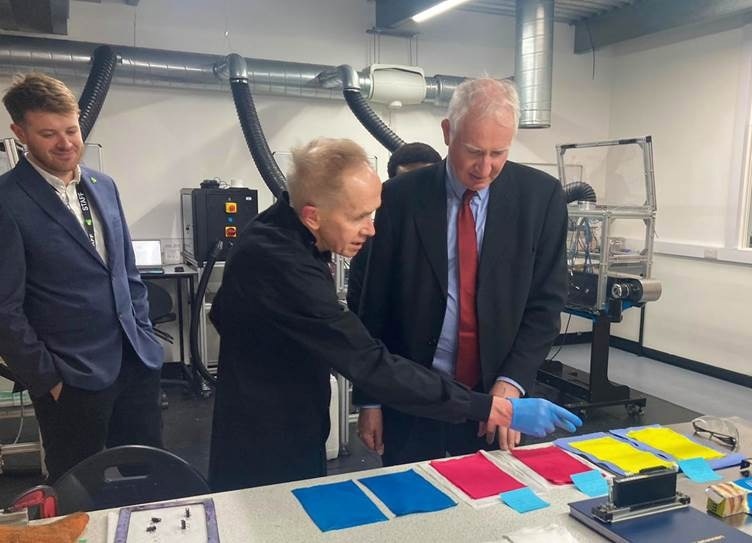The Shadow Environment Minister has called on the textile industry to take ‘meaningful action’ on protecting the environment.

Image Credit: Alchemie Technology
Speaking during a site visit of Cambridge clean-tech company Alchemie Technology, Daniel Zeichner, the Labour MP for Cambridge and Shadow Environment Minister said: “Reducing emissions across the textile industry requires a concerted effort from big brands and their supply chains to implement the latest cleantech solutions to reduce waste.
“Without meaningful action, pollution will continue to blight ecosystems around the world, poisoning our rivers and oceans and hitting developing countries particularly hard.
“It’s encouraging to see British technology firms like Alchemie leading the way with such cutting-edge solutions to protect our environment and transform the textile industry for the long term.”
Textile dyeing and finishing currently accounts for 3 per cent of global CO2 emissions and is predicted to increase to 10 per cent by 2050. Textile dyeing and finishing is also the second-largest contributor to global industrial wastewater pollution, directly impacting millions of people.
Alan Hudd, CEO and Founder at Alchemie Technology said, "The textile industry forms a critical part of the global economy, employing millions of people around the world, but the industry needs urgent change to decrease emissions and improve sustainability.
“The severity of the problem in terms of pollution and damage to the environment cannot be underestimated. Our digital dyeing and finishing technologies have been specifically designed to bring in a new industry standard, reducing climate change and transforming the textile industry, without compromising on quality.
“We are also seeking to alert policymakers and businesses to work together to tackle this problem head-on, so the industry can come together and bring positive change for the long term.”
Alchemie’s Endeavour digital dyeing production process reduces the carbon footprint of dyeing by up to 85 per cent, eliminating up to 95 per cent of wastewater and decreasing the required amount of chemicals by up to 30 per cent.